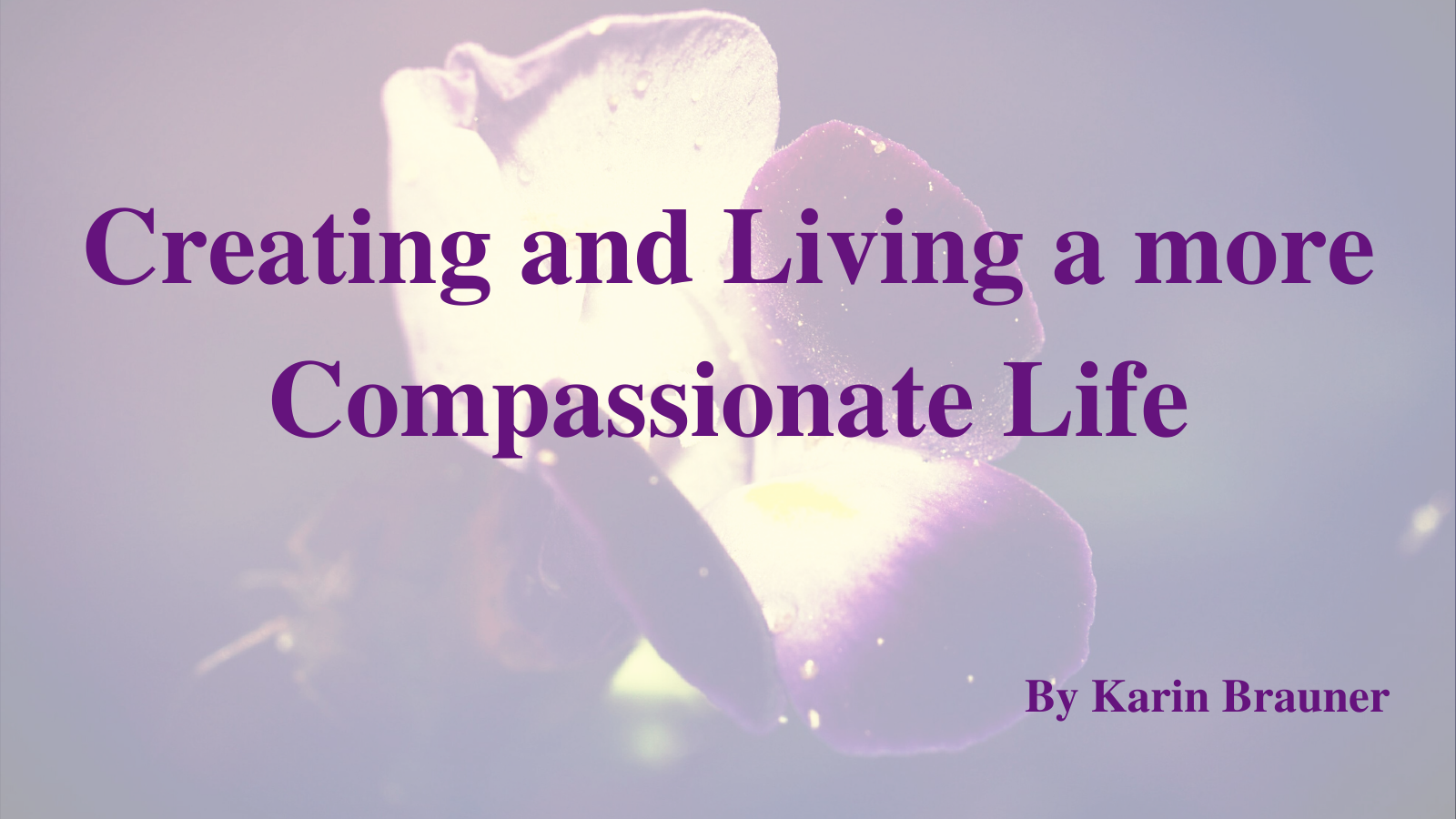
When we create and live a more compassionate we are giving back to the world, but firstly we are giving back to ourselves.
We all know the word “compassion”, but do we know it’s real meaning and benefits for our lives?
Compassion means to suffer together. It is similar and close to empathy, but it’s not empathy. It’s not altruism either. Having said that, compassion will lead us to have empathy and be altruistic. Compassion is about understanding, giving yourself firstly – and others, secondly – a break from judgement and unrealistic expectations.
Compassion is not pity or self-pity (“woe is me”, “I’m the only one struggling with this”, “aww poor you”); it certainly isn’t self indulgence (“I’m feeling sorry for myself so will curl up in a ball and watch TV all day). Having said that, sometimes we do need to give ourselves a break and rest, sleep, and ride out all the emotions that make us feel that self-pity or self-indulgence.
What then, can we gain from creating and living a more compassionate life? Let’s look at a brief list to get us started on this journey:
- practicing compassion releases certain hormones and neurotransmitters that increase that “good” feeling in our bodies.
- being compassionate allows us to be kinder to ourselves and others.
- we can change our perspective and thoughts about ourselves to more positive and understanding ones
- it will increase and keep our mental health in check, through self awareness and awareness of others
- we will start developing more realistic expectations – our previous expectations might have been preventing us from being compassionate.
You might be thinking: “well, that’s all well and good, but it’s going to take a lot of effort”, or “I never learned that from the people around me, what do I do now?”
Great questions! This brings us nicely to the nature versus nurture debate. I believe it’s a mix of both, but one might have impacted more on us than the other, at different stages of our lives. I’ve got some news for you: this doesn’t have to be a permanent, unmovable thing.
The way we were brought up might allow us to more easily access our self-compassion, or it might make it really difficult for us to even feel a smidge of self-compassion and be critical instead.

It follows that, being kind and understanding of where we are at this particular moment in our compassionate living journey, will allow us to re-think the judgement and the criticism, and the punishing thoughts that might come more often than not…more often than thinking of forgiving ourselves or allowing ourselves to miss the mark and be less than perfect.
Being kind and understanding of the fact that this journey called life takes time, effort, and the “rinse and repeat” process. We might learn to be more compassionate, but life situations can get in the way. How do we move through those?
We can be our worst judges, but we don’t have to listen to that critical voice. Positive and kind self-talk can start to quieten that voice. It might never go away, but it will be more manageable as you work through these difficulties.
Dealing with strong emotions and difficult situations is hard in the best of times, but doing so compassionately will get us through with less criticism and need for perfection.
When we are compassionate with ourselves and others, we are more aware of the suffering that is happening, and how our inner critic is behaving.
We are more likely to embrace what is going on and work at it, work through it, in a way that will allow growth and positive change in your life and the life of those you end up helping.
We can empathise with our – and others’ – suffering and find a way to do something about it, to relieve it in one way or another, instead of making it worse by judging or being unforgiving or unkind.
Compassion leads to healthier and more balanced lives and relationships. Having self-compassion will mean our self-worth comes from within ourselves and not needing others to validate our worth.
Our boundaries – or lack of them – and the way we treat ourselves will show others around us how they can treat us. The way we treat ourselves will be reflected also in the way we treat others – whether we are critical or kind.
I want to leave you with three of questions to ponder on:
- What will be the first step you’ll take in this journey of living a more compassionate life?
- How can tap you into the strengths and resources that are already within you, to live a more compassionate life?
- How can you speak to yourself in a more compassionate way, starting today?

